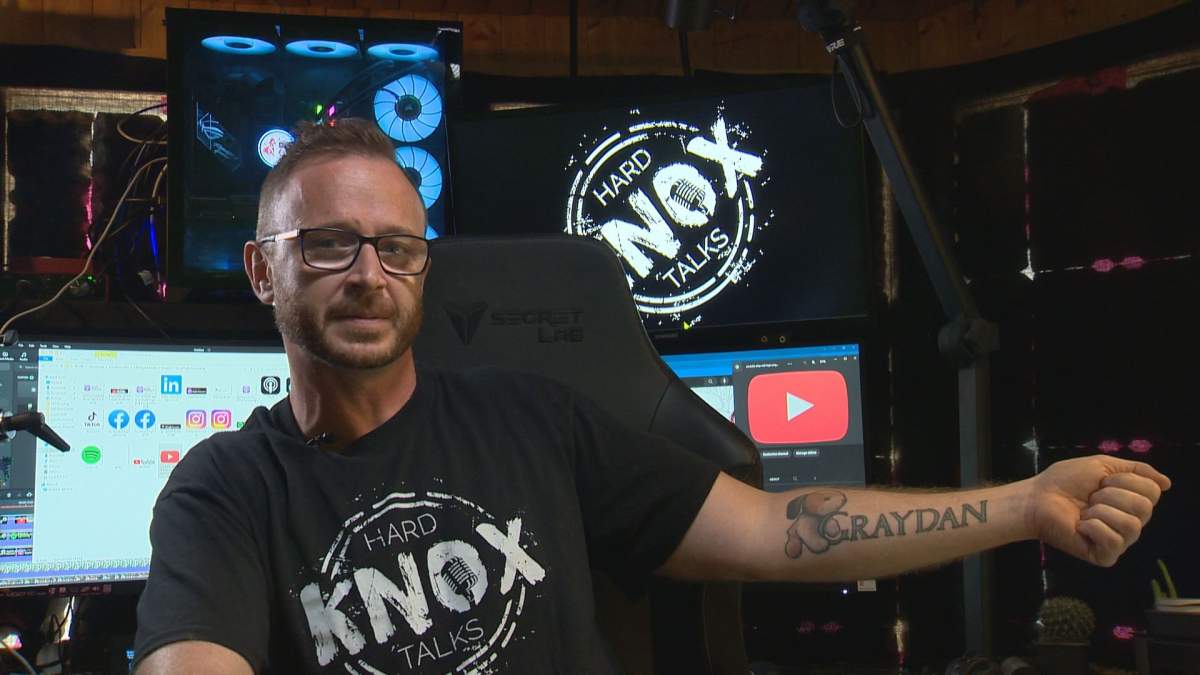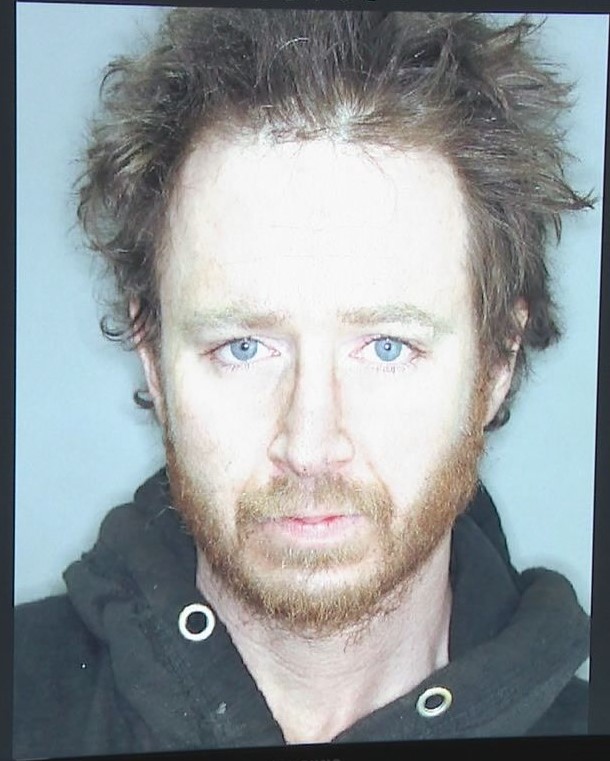“A gift to reflect on” is how Daniel Hearn describes the darkest period in his life. Now he runs Hard Knox Talks together with his wife Donna, a podcast about addiction where they and their guests share their lived experiences.

“After my first time I got drunk at 13, it was all about Friday night. I did everything we could to get my alcohol, find people to buy it for me so I could get drunk every Friday,” Hearn said.
“It was all because I did not realize that I did not like how I felt at the time.”
When he turned 16, Hearn moved to Saskatoon, where he discovered cannabis.
“There was an abundant supply of cannabis in Saskatoon and I could get it every day. It did not take me long to realize that I could sell weed to fuel my own addiction.”
Hearn would continue experimenting and eventually would try everything — crystal meth, cocaine, fentanyl, the list goes on. Looking back, he says the drugs were a way for him to fight off his anxiety and worries.
“It is strange, looking back. I did not even like smoking weed, but every time I thought it would be different and it would help me fight all that anxiety I had,” Hearn said.
“It just took over my life.”
A welder by trade, Hearn used that job to make the money he needed to buy drugs. He met his now-wife Donna at that time and they started using drugs together.
At one point, he and Donna even started their own welding business after going clean for a while, but after a year it all fell apart.
“We said we could reward ourselves by using a little, to celebrate the business going so well.”
A little quickly turned into a lot and Hearn was back to using drugs on a regular basis. It came to the point he preferred staying home high than going to work or picking up the phone. Eventually, nobody called anymore to offer him work.
Kayla DeMong, cxecutive director of Prairie Harm Reduction, says Hearn’s story is very familiar.
“I myself have been in recovery from addiction to crystal meth, alcohol and cocaine for just over 19 years. I know how hard it is to make those changes,” DeMong said.
“It requires an incredible amount of support, because getting clean and sober is not a one-time thing and you’re done. Daniel and I both made many attempts before we could move on from that.”
Things would both change for the better and the worst when his wife became pregnant with their son, Graydan. They both stopped using drugs during the pregnancy, but quickly fell back into their old habits after a few years.

Get breaking National news
That would led to things getting so bad that Hearn lost his job and his son was taken away by social services, a day he remembers well.
“My son was going to a place where I could no longer care for him,” Hearn said. “All I could do is hand him his stuffed animal, Puppy, and hope that Puppy would protect him.”
His son would go into foster care with Hearn’s grandparents, but it would take Hearn six months before he could have his son in his life again.
It was Hearn’s mother, who is an addiction worker herself, that would help him get clean.
“She sat me down for a conversation and at one point she slapped a piece of paper on the table and said, ‘Just sign here if you want to get everything back,'” he recalled. “She Jedi-mind-tricked me into signing up for detox.”
This time, Hearn was ready for detox and he was determined to make it work. He followed the program to the letter, eventually being able to get his son back.
It was the end of a 20-year journey of falling in and out of addiction for him.
DeMong says Hearn’s story, unfortunately, is an exception.
“You need that outside support to get clean if the addiction lasts that long and not everyone has that,” DeMong said.
Now, six years later, both Hearn and his wife are still sober, saying he no longer feels the need for the drugs. After getting clean, there was a different desire growing inside him.
“It just came to me at one point. I wanted not just to tell my story, but I wanted other people’s stories to be told. That is how I came up with the podcast, Hard Knox Talks.”
Run from his small home studio, Hearn goes live every week talking to people about substance abuse. He talks to those going through addiction, those who are clean for a long time and professionals trying to help those with addiction.
The podcast has been running for about two years and has over 125.000 followers on Facebook at the time of writing. Hearn has moved to doing the podcast full-time and is grateful for the creative outlet he was looking for.
Having lived experience himself and talking to others who are or were addicted on a regular basis, Hearn still feels he is in no position to help those with addictions.
“I can talk about my specific set of circumstances and I can give advice to those in similar circumstances, but there are so many wildly different situations and backgrounds that people who get addicted have,” Hearn said.
“I do not presume to know or be able to help someone if their situation is different than mine. That is why I keep talking and learning and I invite my audience to do the same.”
When asked about the current situation in Saskatoon, Hearn has mixed feelings on it.
“I feel that the resources and organizations are there, but they are severely lacking funding. Homelessness, addiction, mental health, it feels like it is just not a priority and I think we can do better.” Hearn said.
DeMong echoes that sentiment:
“Substance use disorder is an extremely complex illness. Underlying it is often a lot of trauma and mental health concerns, and without the proper resources to address those concerns, it’s extremely difficult for people to stop using drugs because they use drugs to cope with that pain.” DeMong said.
“Our focus needs to be far more on solving all the other social issues and less on the actual substance use itself.”











Comments
Want to discuss? Please read our Commenting Policy first.